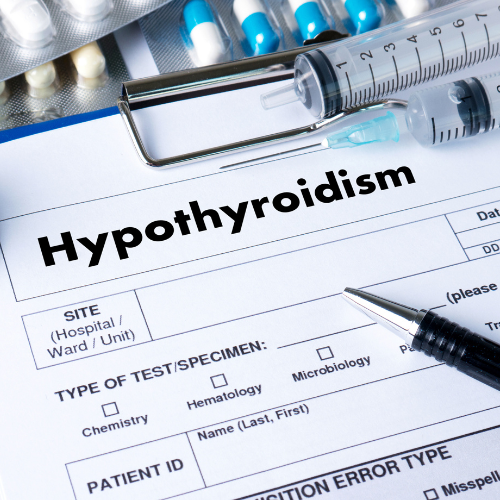Hypothyroidism is a condition that comes up much too often nowadays – but this wasn’t the case 40-50 years ago.
Why? In this video, Dr. Gundry dives deeper into the causes behind this “mini-epidemic.”
You’ll be surprised to learn which “health” foods are contributing to this problem.
Luckily, you’ll also learn some very simple tricks to support your healthy thyroid- it’ll be as easy as putting sea salt on your food (literally).
So if you’re looking for the most updated information about thyroid health, make sure to watch this episode of Closer Look from Dr. Steven Gundry MD!
If you liked this video, you might also enjoy:
Bone Health
• Bone Health
Lectin Theory, Explained
• Dr. Gundry’s The Plant Paradox – Lect…
The UNHEALTHY TRUTH about fermented foods
• The UNHEALTHY TRUTH about fermented f… In the video “Foodies, sea salt, and your thyroid,” Dr. Gundry explores the increasing prevalence of hypothyroidism and its causes. He reveals surprising information about which “health” foods may actually be contributing to this condition. However, he also shares simple tricks that can support a healthy thyroid, such as using iodized sea salt and avoiding glyphosate found in conventional foods. Dr. Gundry emphasizes that this video is not a substitute for medical advice, but serves as a starting point to understand how diet impacts thyroid health. So if you’re interested in staying updated on thyroid health and learning how to support your thyroid, make sure to watch this insightful episode of Closer Look from Dr. Steven Gundry MD.
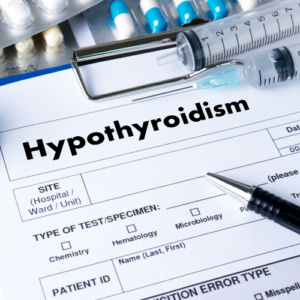
While browsing through the comments on his channel, Dr. Gundry noticed the overwhelming interest in thyroid health, prompting him to create a video addressing this topic. He wants to hear from you and learn about other health-related topics you’re curious about. However, Dr. Gundry emphasizes the importance of seeking medical advice if you suspect a thyroid issue. With the rising incidence of hypothyroidism, Dr. Gundry believes that foodies and their switch to trendy salt varieties that lack iodine, along with the presence of glyphosate in conventional foods, could be contributing to this epidemic. He recommends opting for iodized sea salt and choosing organic food whenever possible. Lastly, for individuals with thyroid issues, he suggests reducing the consumption of cruciferous vegetables or cooking them thoroughly. Ultimately, Dr. Gundry’s goal is to provide valuable information to help you take care of your thyroid and overall health.
Causes of Hypothyroidism
Introduction to hypothyroidism
Hypothyroidism is a condition that occurs when the thyroid gland fails to produce enough thyroid hormones to regulate the body’s metabolism. This can lead to a range of symptoms, including fatigue, weight gain, depression, and low body temperature. Hypothyroidism has become more prevalent in recent years, but it was not as common 40-50 years ago. In this article, we will explore the reasons behind this increase in hypothyroidism cases and the role that certain foods play in contributing to this condition.
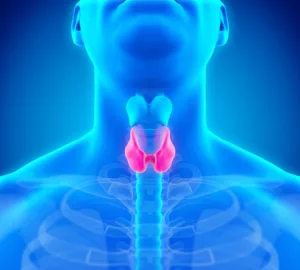
Increase in hypothyroidism cases
The rise in hypothyroidism cases can be attributed to several factors. Firstly, our salt consumption patterns have changed over the years. In the past, iodized table salt was commonly used, which provided the necessary iodine for thyroid health. However, with the popularity of gourmet salts such as sea salt, Himalayan pink salt, and black lava salt, the iodine content has been significantly reduced. As a result, people are not getting sufficient iodine, which is crucial for optimal thyroid function.
Secondly, the prevalence of glyphosate, a common herbicide found in many conventional food products, has had a negative impact on thyroid health. Glyphosate disrupts hormonal balance and is believed to lower the levels of certain amino acids that are essential for thyroid function. Unfortunately, glyphosate is found on almost every conventional fruit and vegetable, making it difficult to avoid entirely.
Lastly, the consumption of cruciferous vegetables, such as cabbage, kale, and Brussels sprouts, has raised concerns among individuals with thyroid issues. While these vegetables offer numerous health benefits, they contain compounds called goitrogens, which can interfere with the production of thyroid hormones. This has led some people to avoid these vegetables altogether.
Contributions of “health” foods to hypothyroidism
Ironically, some foods that are often considered “healthy” can actually contribute to hypothyroidism. The popularity of gourmet salts, which lack iodine, has led to a deficiency of this essential nutrient in many diets. Additionally, the presence of glyphosate in conventional foods, including fruits and vegetables, has further jeopardized thyroid health. These factors highlight the importance of being mindful of the foods we consume and their potential impact on our thyroid function.

The Role of Sea Salt
Importance of iodine for thyroid health
Iodine is a vital mineral that is crucial for the production of thyroid hormones. These hormones play a critical role in regulating metabolism, growth, and development. Without adequate iodine, the thyroid gland cannot produce enough hormones, leading to hypothyroidism. Iodized table salt was introduced in 1924 to combat iodine deficiency and prevent goiters. However, with the advent of gourmet salts, many people are no longer getting enough iodine in their diets.
Introduction of gourmet salts
Gourmet salts, such as sea salt, Himalayan pink salt, and black lava salt, have gained popularity for their unique flavors and textures. These specialty salts are often perceived as healthier alternatives to table salt. However, the primary downside to these salts is that they do not contain iodine. This can be problematic for individuals with hypothyroidism or those at risk of developing the condition.
Lack of iodine in gourmet salts
The absence of iodine in gourmet salts can contribute to iodine deficiency, which is a leading cause of hypothyroidism. Without sufficient iodine intake, the thyroid gland cannot produce enough hormones to maintain proper metabolic function. It is essential to be mindful of the type of salt used in cooking and to opt for iodized sea salt to ensure an adequate supply of iodine for optimal thyroid health.
Benefits of iodized sea salt
Iodized sea salt is a simple and effective way to support thyroid health. It contains the necessary iodine to ensure the proper functioning of the thyroid gland. Iodized sea salt is widely available and can be used in cooking and seasoning dishes just like other types of salt. It is important to read labels carefully and choose products that clearly state they are iodized to reap the benefits of iodine for thyroid health.
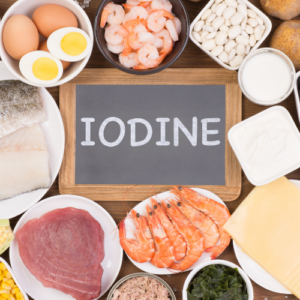
Avoiding Glyphosate
The negative effects of glyphosate on health
Glyphosate, the main ingredient in popular herbicides like Roundup, has been linked to numerous health concerns. It is classified as a possible carcinogen and has been associated with hormone disruption, immune system dysfunction, and damage to beneficial gut bacteria. The negative effects of glyphosate extend beyond thyroid health and can have a broad impact on overall well-being.
Glyphosate’s impact on thyroid balance
Glyphosate has been shown to interfere with hormonal balance, which includes the regulation of thyroid hormones. Thyroid hormones play a vital role in maintaining metabolic function, energy levels, and mood. By disrupting the balance of these hormones, glyphosate can contribute to the development of hypothyroidism or worsen existing thyroid conditions.
Presence of glyphosate in conventional foods
Glyphosate is a pervasive herbicide found on conventionally grown fruits, vegetables, grains, and other crops. It is used to control weeds and promote crop growth. As a result, most non-organic food products contain varying levels of glyphosate residue, making it challenging to avoid exposure. This widespread presence of glyphosate underscores the importance of choosing organic options whenever possible to minimize exposure to this harmful chemical.
Organic options and their benefits
Organic farming practices prohibit the use of glyphosate and other synthetic pesticides. Choosing organic foods reduces the risk of glyphosate exposure and supports sustainable farming methods. While organic options may have a higher price tag, larger retailers like Walmart, Costco, and Safeway now offer a wider range of organic products at competitive prices. Making organic choices for staple foods can help prioritize thyroid health and minimize exposure to harmful chemicals.
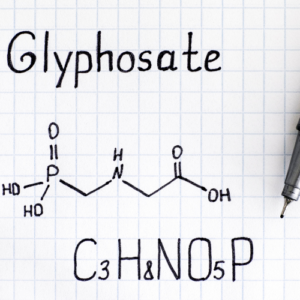
Impact of Cruciferous Vegetables
Positive health benefits of cruciferous vegetables
Cruciferous vegetables, including cabbage, kale, and Brussels sprouts, offer a myriad of health benefits. These vegetables are packed with nutrients, fiber, and antioxidants, which can support overall well-being and promote a healthy immune system. Cruciferous vegetables also contain compounds called glucosinolates, which have been shown to have anti-cancer properties.
Concerns for individuals with thyroid issues
While cruciferous vegetables are generally considered beneficial for health, individuals with thyroid conditions may need to exercise caution. Raw cruciferous vegetables contain goitrogens, which are compounds that can interfere with the production of thyroid hormones. In excessive amounts, goitrogens may exacerbate existing thyroid issues or contribute to hypothyroidism.
Effectiveness of cooking cruciferous vegetables
Cooking cruciferous vegetables can reduce the goitrogenic compounds present and minimize their impact on thyroid function. Heat breaks down the enzymatic activity responsible for producing goitrogens, which allows for safe consumption by individuals with thyroid health concerns. Steaming or sautéing cruciferous vegetables can help retain their nutritional value while reducing the goitrogenic properties.
Alternatives to completely avoiding cruciferous vegetables
For those who enjoy the taste and health benefits of cruciferous vegetables but have concerns about their impact on thyroid health, there are alternatives to consider. Cooking cruciferous vegetables thoroughly can significantly reduce the goitrogenic effects, allowing individuals with thyroid issues to continue enjoying these nutritious foods. It is important to strike a balance and consume cruciferous vegetables in moderation while prioritizing overall thyroid health.
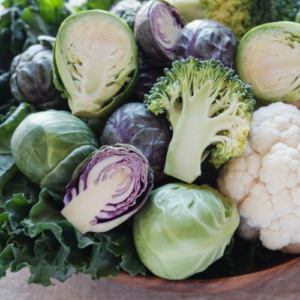
Conclusion
Hypothyroidism is a condition that has become more prevalent in recent years, with various factors contributing to its rise. The shift from iodized table salt to gourmet salts, the presence of glyphosate in conventional foods, and the potential impact of cruciferous vegetables on thyroid function all play a role in the development and management of hypothyroidism. By being mindful of our salt choices, opting for organic options, and cooking cruciferous vegetables, we can support a healthy thyroid and overall well-being. Prioritizing thyroid health is essential for maintaining optimal metabolic function and overall vitality.
